
- National Assembly

Tourism Enterprise Partnership on support to Small, Micro and Medium Enterprises; Committee Oversight Report
27 february 2015, chairperson: ms b ngcobo (anc), meeting summary.
The Tourism Enterprise Partnership (TEP) briefed the Committee on the support it provided to Small, Micro and Medium Enterprises (SMMEs). The TEP was a non-profit company functioning on public private partnerships. Notable achievements were enterprise and supplier development programmes as well as having a well established practice of cost sharing partnerships with provincial tourism authorities. There were five pillars that formed the basis of TEP’s service offering ie access to information, business support, access to finance, skills development and access to markets. The impact of the TEP since its inception in 2000 was that it contributed to the generation of over R7bn, supported the creation of 80 000 jobs, trained over 25 000 SMME operators and employees and mentored over 450 small tourism businesses. The total size of the TEP database was 4100 establishments. Some achievements of the TEP 2013-2014 were that 920 SMMEs had been registered and paid surpassing the target of 500. 3285 individuals were trained. 4040 jobs were created by supported SMMEs. The TEP had the Business Development Fund (BDF) that provided grants to enterprises. Access to finance had been the missing link to TEP’s work. The TEP had been looking for a way to address the challenge and the SEFA (Small Enterprise Finance Agency) on the other hand had been looking for ways to mitigate the inherent risk in providing financing to small businesses. The idea of a mutually beneficial partnership between SEFA and the TEP was thus born and conceptualised into the Ikwezi Tourism Facility (ITF). ITF was a R50m revolving facility available exclusively to TEP registered clients. Ikwezi provided financing ranging from R10 000 to R5m and repayments ranged from 3 Months to 5 years. The TEP commissioned the Small Business Project (SBP) to do a three-year study on the TEP to measure the impact it had on the tourism sector. The SBP study showed that services that TEP offered that made the most impact, in descending orde, were training, marketing and market access support, funding, mentorship and networking. Feedback from the 130 SMMEs that had participated in the study noted certain barriers to employment. The most problematic barrier was the regulatory environment including labour law. Lacks of skills, the seasonal nature of the tourism industry and staff turnover were other barriers identified. The TEP’s 50/50 partnership with the NDT was to expire on the 31 March 2016 and it would most probably not be renewed as the Tourism Incentive Programme (TIP) would be launched soon and SMME development may be done in house by NDT itself. The TEP was adjusting its business model in anticipation of the partnership ceasing. In conclusion the major challenge for the TEP was resource mobilisation.
Members were interested to know what the actual figures of TEP were on job creation and information on some of its other efforts, and how the TEP’s cost of creating a job compared to that of other organisations creating jobs as well. It was also asked whether the TEP had done international benchmarking to assess itself. Given that the SBP study on TEP had shown that the most problematic barrier to employment in SA was its regulatory environment including SA’s labour law regime, could this result be quantified? Members questioned the fact that the TEP was earning interest on funds held in fixed deposit accounts and why these funds were not used to create jobs or for other development activities. The Committee asked what the efforts of the TEP in rural areas were and whether their work covered all the provinces. Members asked whether the TEP’s projects were aligned with government’s National Tourism Sector Strategy and whether there was duplication with the programmes of the NDT. It was furthermore asked why TEP’s figures on youth initiatives were low and whether they also assisted disabled persons. Questions were asked about the salaries and bonuses paid at the TEP. The Committee requested a list of SMMEs that the TEP had assisted. Noting that the NDT was perhaps to stop its funding to the TEP, members were looking forward to the NDT’s briefing on the Tourism Incentive Programme (TIP) to check on whether the TIP would in-house be doing what the TEP had been doing for the past 15 years. Members asked whether the TEP had questioned the decision by the NDT to stop the funding.
Committee Minutes dated the 20 February 2015 were adopted as amended. The Draft Oversight to Pretoria Report 2014/15 was also adopted as amended.
Meeting report
Tourism Enterprise Partnership (TEP) The Tourism Enterprise Partnership briefed the Committee on the support it provided to Small, Micro and Medium Enterprises (SMMEs). The delegation comprised of Dr Salifou Siddo, Chief Executive Officer and Ms Lisa Hosking, General Manager. Mr Siddo undertook most of the briefing with Ms Hosking coming in where necessary. The TEP was a non profit company functioning on public private partnerships. Notable achievements were enterprise and supplier development programmes as well as having a well established practice of cost sharing partnerships with provincial tourism authorities. Five pillars formed the basis of TEP’s service offering ie access to information, business support, access to finance, skills development and access to markets. The impact of the TEP since its inception in 2000 was that it contributed to the generation of over R7bn, supported the creation of 80 000 jobs, trained over 25 000 SMME operators and employees and mentored over 450 small tourism businesses. The total size of the TEP database was 4100 establishments. It comprised of 58%-rural enterprises, 68%- historically disadvantaged enterprises (HDEs), 13%- youth owned enterprises and 47% - women owned enterprises. Breakdown in terms of small, micro and medium sized enterprises was 55%, 43% and 3% respectively. Some achievements of the TEP 2013-2014 were that 920 SMMEs had been registered and paid surpassing the target of 500. 3285 individuals were trained and 4040 jobs created by supported SMMEs. For the period 1 April to 31 March 2014 access to finance via the Business Development Fund (BDF) was that 469 enterprises had received BDF grants, of which 126 were rural enterprises and 339 were HDEs. The point was made that access to finance had been the missing link to TEP’s work. TEP had been looking for a way to address the challenge and the SEFA (Small Enterprise Finance Agency) on the other hand had been looking for ways to mitigate the inherent risk in providing financing to small businesses. The idea of a mutually beneficial partnership between SEFA and the TEP was thus born and conceptualised into the ikwezi Tourism Facility (ITF), a R50m revolving facility available exclusively to TEP registered clients. Ikwezi provided financing ranging from R10 000 to R5m and repayments ranged from 3 Months to 5 years. Interest rates charged ranged from 10.6% to 12.6%; substantially lower than commercial banks. Ms Hosking stated that on skills development the TEP had mentorship programmes, training workshops and learnerships. The TEP commissioned the Small Business Project (SBP) to do a three year study on the TEP to measure the impact that it had on the tourism sector. The SBP study showed that the services that TEP offered that impacted most, in descending order, were training, marketing and market access support, funding, mentorship and networking. Feedback from the 130 SMMEs that had participated in the study noted certain barriers to employment. The most problematic barrier was the regulatory environment including labour law. Lacks of skills, and the seasonal nature of the tourism industry and staff turnover were other barriers identified. Mr Siddo reiterated that that the TEP’s 50/50 partnership with the NDT was to expire on the 31 March 2016 and would most probably not be renewed as the Tourism Incentive Programme (TIP) would be launched soon and SMME development may be done in-house by the NDT itself. The TEP was adjusting its business model in anticipation of the partnership ceasing. Total cash income from the NDT to the TEP in 2009/2010 had been R52m but the amount had drastically decreased to R13.5m in 2015/2016. The impact of TEP’S work was affected in that jobs created in 2009/2010 had decreased from 6527 to 3600 in 2014/2015. In conclusion the major challenge for the TEP was resource mobilisation. Discussion Mr G Krumbock (DA) asked for confirmation that the TEP received 50% of its funding from the Business Trust and 50% of its funding from the NDT. What the actual numbers that the TEP achieved and how many jobs had the TEP created? The TEP’s impact spoke about “contributing” to the generation of over R7bn. It “supported” the creation of over 80 000 jobs. It was quite difficult to determine what exactly TEP’s contribution was. Taking the R7bn contribution and dividing it into the 80 000 jobs gave one the cost of creating a job which came to R87 500. How did this cost compare to the cost of creating a job by other government initiatives such as the Expanded Public Works Programme? It was admirable that the TEP had done a survey of how it was performing. He asked whether the TEP had done international benchmarking. Given the SBF research showing the labour law regime in SA having a negative impact upon the creation of jobs, he asked whether the results could be quantified. On the financials of the TEP he said that it would seem that the main source of income for the TEP was interest on funds that it held in fixed deposits in financial institutions. What were the TEP’s payables? There was R5m on which interest was being earned. He asked what the genuine and designated revenue of the TEP was. The TEP was earning interest on funds that should have been used to create jobs. Dr Siddo explained that putting a price on job creation depended upon the industry that one was in. In a manufacturing industry the cost was much higher than the cost in a service industry. The Jobs Fund did have a benchmark that could be used. R23 000 per job was the benchmark. It however depended upon the industry. One also had to consider the impact of inflation. The TEP had not used a benchmark and perhaps it could check on what the costs for enterprise support was for example in BRICS countries. On the financial management of the TEP and the interest generated on monies held in a fund he explained that the funds were legacy funding that had been received from the Business Trust when it ceased to exist in 2011. It was TEP’s seed capital for its next bid. The fund in which the funds were held had been registered as a benefit to public organisation. It was correct that the NDT only provided 50% of the TEP’s funding. The TEP had to organise the remaining 50% themselves and it was not always in cash, sometimes it was in kind. It was a cost saving exercise for the TEP. Legacy funding from the Business Trust amounted to R35m but the TEP had to make the funds last. The TEP did its part on securing assistance by way of its partnerships. The TEP was for example partnered with a Swiss organisation name Swiss Import Promotion Programme (SIPPO) that promoted international trade. They covered the costs of sending two TEP employees to international trade conventions. Mr J Vos (DA) said that the Committee did support the efforts of the TEP but the Committee had to check on how public funds were spent. It was good that the TEP had partnership programmes in place but the Committee required the focus to be more on rural areas. A geographical spread across SA was needed. Did the mandate of the TEP include rural tourism providers? On the demand and supply side when the TEP provided training, mentorship and funding, were the TEP’s projects aligned with government’s National Tourism Sector Strategy (NTSS)? Was there perhaps duplication with the programmes of the NDT? On the services of the TEP, the audit assessment had shown that training scored high but mentoring and networking figures were not so good. Mentoring and networking figures should be higher. He thought it a good exercise with the imminent launch of the NDT’s Tourism Incentive Programme (TIP) to compare its role and impact with that of the TEP. It would be interesting to see the result given that the NDT perhaps intended to stop funding to the TEP. A check could be done to see whether the TIP would be doing things that the TEP did. The Committee would be receiving a briefing on the TIP on the 13 March 2015. Mr Siddo stated that NDT funding came along with its own targets. Funding was linked to specific targets that were aligned with the NTSS. The TEP supported the objectives of the NTSS. On duplication the targets of the NDT were ring-fenced. Public funding was tied to specific targets. The NDT informed the TEP what its funding should be used for. There were instances where the TEP negotiated with the NDT over what funds should be used for. He explained that figures were low on mentorship as mentorship programmes was expensive to run. Mentorship was reserved for companies that showed a certain level of growth. Of the 130 establishments not all formed part of the mentorship programme. He was aware that from a business point of view mentorship and networking was very important. It was a matter of strategic choice for the TEP as well as what its partners like the NDT had to say. He did not believe that there was duplication with the work of the NDT as the TEP did have experience to run some of the NDT’s programmes ie Social Responsibility Implementation (SRI) projects. Ms S Xego-Sovita (ANC) appreciated the presentation by the TEP given that tourism was a job creation driver. Where were the establishments that the TEP had assisted? Did the TEP’s efforts cover all nine provinces? She understood that most tourism activities took place at coastal cities and hence there could be clustering in the more inland provinces. She was however surprised that the Eastern Cape Province had been clustered with the North West and Gauteng Provinces. Did the TEP have fully fledged offices in the provinces that it operated? She asked why the TEP had a flat rate for its membership fees; what role the TEP played on small establishments, and whether it stood surety for small establishments? On mentoring and training, she asked whether the TEP did follow ups on establishments that it provided funding to. She furthermore asked why the Lilizela Awards were lily white. Where the TEP assisted establishments with funds to get graded, did these establishments remain graded? On the learnerships that the TEP provided for youth, were follow ups done to check whether they were placed in jobs. Ms Hosking responded that the TEP did have physical offices in the provinces. Membership with the TEP was at a flat rate of R650, however provision was made for discounted rates. The TEP did do follow ups on its mentorship. There was graduation from mentorship to market access. The Committee would be provided with a breakdown of jobs created. Mr Siddo added that there was a monitoring and evaluation of the process. Evidence sheets tracked targets. The evidence did show which establishments created which jobs. What the TEP did could be verified. The TEP used an evidence report for accountability purposes. The clustering of provinces were not clustering per se. The TEP’s head office indicated to each province how many enterprises they had to support. The latest allocation from the NDT of R13.5m had to be used for rural enterprises. Before it became the Lilizela Awards the awards used to be run with the TEP. The TEP used to shortlist candidates. It had also assisted the candidates in the skills that they required. He had judged the awards from 2000 to 2007 and many of the SMMEs that the TEP had assisted had won the awards. So there were pockets of excellence. Yes the TEP did assist establishments with support to get graded but it was up to the establishments whether they wished to remain graded. The TEP did however place a three-year cap on an establishment to remain graded. The TEP membership used to be free up until two years ago. The fee was introduced so that SMMEs could feel more accountable instead of having a free ride. In the past SMMEs, because they had nothing lose, often would not attend programmes they had committed themselves to. It meant a loss for the TEP. The admin fee was introduced to prevent the TEP from being abused. Ms P Adams (ANC) asked what the TEP thought the reason to be why the NDT was perhaps considering ending its funding to them, especially since the TEP had over the past 15 years enjoyed successes on SMME development and job creation. Was the TEP engaging the NDT over the issue? Based on the NDT funding coming to an end, what was the TEP’s plan? Was the TEP engaging with the Department of Small Enterprises? She asked when the TEP had started its efforts on Wiki (Ikwezi) tourism. Why were the TEP’s figures on networking low? What could be done to improve the figures? The TEP in the presentation had alluded to the fact that the labour law regime in SA had been identified as a challenge hampering job creation. She suggested that the TEP in its training provide insight into the labour regulatory environment so that when establishments entered the industry they knew what to expect. If there were 263 learnerships why were there only 156 successes? It was a 59% success rate. What happened to the remaining 49%? She pointed out that the Committee was interested in the TEP’s efforts in rural areas. A pie chart had shown the TEP had assisted 48% of businesses in rural areas and only 13% of youth businesses. Why were the youth figures so low and how could they be improved? What was being done to assist persons with disabilities? She asked whether there were exit strategies for small and micro businesses when they became medium sized businesses. She asked what the impact of SMMEs being incorporated into big companies was. Why did the TEP not use its partners to play a mentorship role to small businesses? Mr Siddo stated that the problem was the TEP did not have sufficient resources. They had 15 years of experience though. The TEP was forced to reinvent its business model in the event that it no longer had a partnership with the NDT. The TEP had a partnership with the Rennies Group over the past 4 years. They wished to create opportunities for guesthouses through the TEP. He conceded that of the 263 Culture, Arts, Tourism, Hospitality, Sports, Sector Education and Training Authority (CATHSSETA) learners only 159 could handle the pace. He did not know whether all 263 learners would graduate. Learners had to do the work that was expected of them. The TEP had asked the CATHSSETA how it was performing in relation to other organisations and the reply was that the TEP was performing the same as other organisations. On youth enterprises and youth employment, the first thing he did when he joined the TEP in 2011 was to have a meeting with the National Youth Development Agency. Partnership with the Agency fell flat when the person dealing with the project left its employment and the incumbent was not interested. The TEP did have the expertise and knowledge to set up programmes with the youth. He felt that the focus should be more on unemployed youth. Ms Hosking pointed out that the CATHSSETA training was for employed learners. The problem was that employers did not always wish to release their employees for the training. The TEP had to incentivise employers with a R1 000 to release employees. The volume of work for some of the learners was also too great, as many of them had not studied in years. Mr J Esterhuizen (IFP) asked how many key members of the TEP received salaries. Given that salaries amounted to R4m. There seemed to be annual bonuses amounting to R1.6bn. The total cost of employment was over R10m. He asked why four directors including the Chairperson of the TEP had resigned in 2012. Mr A Whitfield (DA) stated that Committee be given the list of SMMEs that had been assisted by the TEP. He asked what efforts the TEP made to target specific youth. What was TEP’s coordinating role? The Chairperson asked whether the TEP assisted cooperatives as well. She agreed that the TEP needed to do international benchmarking. There must be organisations abroad that did similar work as the TEP did. Were there other organisations in SA doing similar work and what had the TEP learnt from them? In the interests of time she suggested that outstanding responses to questions from the TEP be forwarded to the Committee in writing. She asked Mr Thabo Manetsi, NDT Director: West and Northern Cape – Leading in Heritage Development, if he wished to make an input. Mr Manetsi stated that the NDT had supported the TEP for many years. Unfortunately the NDT had to make budget cuts to the funding of the TEP, hence there were minimal funds to work with and the focus now was on rural areas. Research had been done on the developmental needs of enterprises. There was also a new Small Business Ministry. Provinces also had programmes to support SMMEs. Rural development had many layers to it. All efforts of both the TEP and the NDT were about addressing national imperatives. There were many vehicles besides the TEP that could support SMMEs. The NDT also had the Tourism Incentive Programme (TIP). Duplication had to be prevented. Mr Vos stated that there was uncertainty as to whether the TEP would continue or whether the TIP would replace it. The Chairperson said that Mr Vos could ask them about that at the TIP briefing. She informed the Committee that Ms Thembi Kunene had resigned from the Tourism Grading Council of SA. She also said that it would be good if members could attend the upcoming local government conference on tourism. Committee Minutes The Committee adopted minutes dated the 20 February 2015 as amended. Draft Oversight to Pretoria Report 2014/15 The Committee adopted the Report as amended. The meeting was adjourned.
Follow this committee
Write to this committee
- Tourism Enterprise Partnership (TEP) on support to SMMEs
- TEP written responses to MP questions
- Tourism Enterprise Partnership 27 February 2015

Download as PDF
You can download this page as a PDF using your browser's print functionality. Click on the "Print" button below and select the "PDF" option under destinations/printers.
See detailed instructions for your browser here .
What's wrong with this page?
- About the ATTA
- Sustainability
- Our Initiatives
- Adventure Travel Conservation Fund
- Leadership & Team
- Internship Program
- Business Development
- Global Travel News
- Industry Spotlight
- Industry Voices
- Member News
- Regional News
- B2B Marketing
- Signature Events
- Market Activation
- Climate Action
- Storytelling
- B2C Marketing
- Event Calendar
- AdventureELEVATE Latin America 2024
- AdventureELEVATE Europe 2024
- AdventureELEVATE North America 2024
- AdventureWeek Finland 2024
- Climate Action Summit 2024
- AdventureWeek Okinawa 2024
- AdventureNEXT Fiji 2024
- AdventureConnect
- ATTA on the Road / Virtual
- Expert Nomination & Topic Suggestions
- Events Sustainability
- Sustainability Resource Center
- On-Demand / Webinars
- Inspiration
- Guide Standard
- Global Payment Resource
- Free Community Membership
- Become a Member
- ATTA Ambassadors
- Active Members
- Adventure Champions
- Community Books
- Case Studies

Shopping Cart
Shopping cart items, fair trade tourism and the tourism enterprise partnership join forces in driving sustainable tourism.

FTT is a non-profit company with a ten year track record in promoting responsible tourism. They do this by growing awareness about responsible tourism to travellers; assisting tourism businesses to operate more sustainably and by facilitating a Fair Trade Tourism certification programme across southern Africa.
Tourism businesses that adhere to the FTT standard use the FTT label as a way of signifying their commitment to fair and responsible tourism. This includes fair wages and working conditions, fair purchasing and operations, equitable distribution of benefits and respect for human rights, culture and the environment. FTT certification remains a voluntary process, but is a “must have” for businesses looking to promote themselves in the responsible tourism market.
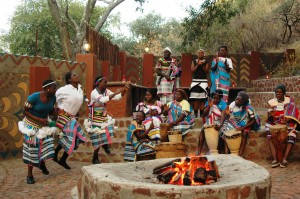
TEP facilitates the growth, development and sustainability of SMMEs, with a particular focus on those that are owned and managed by previously disadvantaged individuals or groups. This is achieved through a number of services that provide hands-on, step-by-step support and guidance which ultimately improves the SMMEs product quality, operational efficiency and market reach. TEP currently supports more than 3 000 tourism SMMEs throughout South Africa.
According to TEP’s Chief Executive, Dr. Salifou Siddo, this new partnership falls squarely within TEP’s new strategy of leveraging its substantial database of tourism SMMEs to add value and support the work of organisations that are involved in tourism development. “FTT is the uncontested champion when it comes to Responsible Tourism and it is only natural that we should serve as a communication conduit as well as an implementation partner for this organisation to reach out and recruit more tourism SMMEs into its certification programme. Our SMMEs will benefit tremendously from the partnership as Responsible Tourism is gaining momentum worldwide,” Siddo added.
FTT’s General Manager, Kathy Bergs, adds that “The FTT-TEP partnership is a logical and valuable coming together of a world class standard and a proven formula for enterprise development which will lift sustainable tourism onto a whole new level and provide a model for other countries to emulate”.
- Research Publications
- Student Research Corner
- Seminar/Webinar
- Research Agenda
- Advanced Search
- What is Responsible Tourism?
- Responsible Tourism Strategy
- Responsible Tourism Certification
- Greening and Climate Change
- Community Based Tourism
- The Function of Local Government
- Capacity Building
- Tourism Transport Integration
- Legislative Matters
- Registration Requirements
- Tourist Guide Identification
- Tourist Guides Media Releases
- Tourist Guide Initiatives
- Visitor Information Centres
- Visitor Information Centres Directory
- Tourism Agencies , Department, VIC databases

- National Minimum Standard for Responsible Tourism
- Certification Process
- Responsible Tourism Self-Assessment Tool
- Certification Bodies
- Incentives Currently selected
SANS 1162 INCENTIVES
In order to stimulate the implementation of SANS 1162 and encourage certification of tourism businesses, the tourism sector in partnership with NDT has identified the need for incentives. The following organizations administer incentives that support the implementation of SANS 1162 and can be assessed by tourism businesses, upon successful application.
The Small Enterprise Development Agency (Seda) is an agency of the South African Department of Trade & Industry (the dti). Seda’s mission is to develop, support and promote small enterprises throughout the country, ensuring their growth and sustainability in coordination and partnership with various role-players. Seda has developed the “Conformity Assessment Incentive” administered by the Conformity Assessment Unit at the Small Enterprise Development Agency .
The unit facilitates the certification process through the South African Bureau of Standards (SABS) and other certification bodies. The incentive is geared towards the development and implementation of various management systems, including ISO 14001(Environmental Management System) through the provision of R90 000.00 (Ninety thousand rands only) in grant/incentive support. Additional information can be obtained on the website: seda.org.za
The Tourism Enterprise Partnership (TEP) is a Non Profit Company, one of the longest standing and most successful public private partnerships in South Africa. TEP facilitates the growth, development and sustainability of small tourism businesses.
Tourism businesses wishing to have more information on funding criteria are welcome to assess the information on the website: tep.co.za/WorkingWithTEP.aspx
NDT is also in the process of finalizing an incentive package for the tourism.
- GLOBAL OFFICES
- Mission & Values
- Global Offices
- Ethics & Integrity
- Employee Ownership
- Our Clients
- Working with DAI
- Developments Blog
- Digital@DAI Blog
- GH Resource Library
- Nigeria Resource Library
- Practice of Partnership
- All Podcasts
- View More News
- Working at DAI
- Career Areas
- Career Search
- Alumni Network
South Africa—Tourism Enterprise Programme (TEP)
Client: Business Trust and the Department of Environmental Affairs and Tourism South Africa
Duration: 2000-2010
Region: Sub-Saharan Africa
Country: South Africa
Solutions: Governance
Under apartheid, most South Africans were restricted from traveling freely, owning land, or making investments in areas of their choice. The result: an undeveloped culture of tourism and a lack of appreciation of the economic opportunities presented by tourism. To this day, the industry remains predominantly white-owned and -controlled, catering largely to white and foreign tourists. At the same time, unemployment in South Africa has been rising since the 1970s. After intensive consultation, business and government leaders settled on tourism as the sector most likely to yield sizeable numbers of job opportunities in the shortest time. The Tourism Enterprise Programme (TEP) was initially launched as a four-year national job creation initiative in July 2000. Following good performance in Phase I, TEP was granted extensions through March 2010, which enabled the program to broaden its range of stakeholders and emerge as a powerful catalyst for small, medium-sized, and microenterprise (SMME) participation in industry growth and job creation. TEP worked with the SMMEs by assessing their constraints to growth—recognizing that jobs can only be created by businesses that are growing sustainably—then jointly identifying appropriate ways to address those constraints.
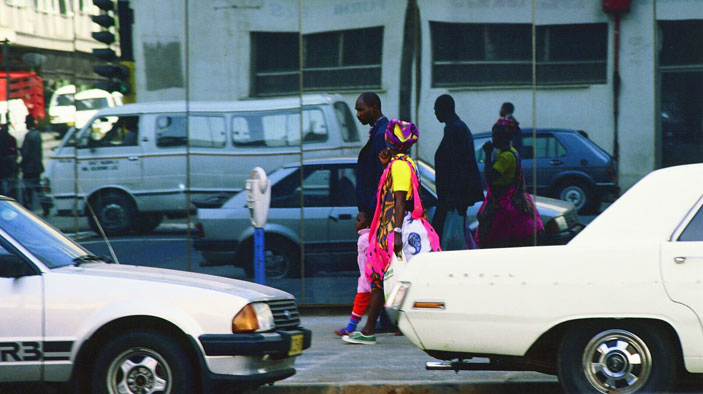
Sample Activities
- Assess constraints to growth for small, medium-sized, and microenterprises.
- Identify appropriate ways to address those constraints.
Select Results
- More than 3,100 participating SMMEs increased revenue by R2.1 billion in the first six years.
- More than 30,500 jobs created in the first six years.
- Assisted 1,600 enterprises to obtain new business.
RELATED CONTENT:
Afghanistan—Assistance to Legislative Bodies of Afghanistan (ALBA)
The Assistance to Legislative Bodies of Afghanistan (ALBA) project prepared both houses of Parliament for greater self-reliance.

Mission Moscow : A Conversation with Evgeny Kozlov
Mr. Evgeny Kozlov, Deputy Head Mayor of Moscow Government and Chairman of the Moscow City Tourism Committee, who has come to the city to attain BLTM, the annual prestigious travel event at the Leela Ambience Convention Centre, Delhi spoke with TW Editor Anirban Dasgupta on his vision and goal with the all-new tourism initiatives in Moscow.
The bond between India and Russia has a long history of culture, literature, love, and of course politics. But recently, there has also been a lot of talk about Gastronomical tourism. Any personal experience with this?
My personal take on the bond between India and Russia stems from my recent experience of trying authentic Indian cuisine in Moscow. I thoroughly enjoyed the spicy flavours of the Curry dish I tried and it left a lasting impression on me. This made me appreciate the cultural exchange between our two countries even more. I believe that Moscow, being a culinary hub, is a great place for people from all over the world, including Indian visitors, to immerse themselves in our rich history and culture. It’s a unique experience that brings people together and showcases the diversity of the gastronomic universe. Moscow has a thriving food scene with various international cuisines to explore, from Chinese to South African and Latin American. This culinary diversity reflects the open-mindedness and curiosity of the Russian people when it comes to trying new types of food. Moscow truly has something for everyone, and I encourage Indian tourists to come and indulge in this gastronomic journey.

How optimistic are the post-pandemic recovery figures?
After the Covid-19 pandemic, we have witnessed a remarkable recovery in tourism in Moscow. In fact, we have been able to restore 90% of the pre-pandemic tourist flow. In the first half of 2023, almost a million foreign tourists visited Moscow, with over 600,000 of them arriving during the summer season. Among the non-CIS countries, China has led the way in terms of tourist traffic, followed by Iran, the United Arab Emirates, Turkey, and India. Prior to the pandemic, India’s tourist flow was steadily growing at a rate of 12-15% annually. Although we faced challenges during the pandemic, we have now put in place all the necessary conditions for a successful recovery. Moscow is known for hosting numerous international exhibitions, forums, congresses, and conferences, attracting approximately 3.6 million business visitors in the past year alone. Among these visitors, India ranks third in terms of foreign business tourists in Moscow. To further promote tourism, we have initiated the MICE Ambassadors training program in India, which aims to assist Indian businesses in exploring opportunities and selecting relevant events in Moscow.
Can you please share your vision for future tourism development in Moscow?
Thank you for asking this question. I have a multi-faceted vision for the future tourism development in Moscow.
Firstly, I believe that tourism should provide a personal and authentic experience for each individual. Therefore, customization of experiences is crucial. For business tourists, we aim to offer special infrastructure facilities that cater to their specific needs and requirements. We are closely collaborating with infrastructure providers to ensure seamless experiences for those visiting Moscow for business purposes. On the other hand, when it comes to leisure or family tourists, we recognize the importance of providing a support system and guidelines for those traveling with their families, especially children. We are working with museums, theatres, and restaurants to customize their services and products to cater to tourists of all ages, including children. Furthermore, I envision rearranging tourism in Moscow to encourage visitors to delve into the history and heritage of our country. A significant part of my tourism goal is to motivate and inspire the youth and younger generations to travel to Russia. This involves providing affordable pricing for accommodations, entertainment, museums, and other attractions.
We are already constructing tailor-made infrastructure that specifically targets the young generation in Russia, and by next year, we plan to extend and promote these offerings to international young visitors as well. By rebranding the image of Moscow as a destination for longer stays, relaxation, and enjoying various facilities, we aim to change the perception that it is merely a transit or stop-over city. Lastly, the beautiful weather in Moscow during the summer months provides an opportunity to create delightful memories for tourists. I want every visitor to experience the sunshine, green landscapes, parks, cafes, restaurants, swimming pools, and sports facilities that Moscow has to offer during this time.
In summary, my vision for the future of tourism in Moscow revolves around creating customized travel experiences for every type of traveller.
How do you prioritize sustainability and responsible tourism practices in the development of business tourism?

How easy or difficult is it to get a Visa for an Indian Tourist at present?
Acquiring a Visa for Indian tourists has become easier with the introduction of the e-visa system. Since its launch in August 2023, more than 30,000 tourists have already utilized this system. The e-visa offers several advantages over traditional visas, such as avoiding the need to visit consulates or embassies. The application process only requires a digital photograph and a scan of the passport data page. The e-visa has a validity period of 60 days from the date of issuance, with a maximum stay of 16 days in Russia. This convenient and streamlined process is available to citizens of 55 countries, including India. Indian tourists are currently ranked third in terms of business travellers from outside the CIS countries visiting Moscow.
Author: Anirban
Share article, related news.


BLTM 2023 showcases top destinations for Bleisure and MICE Travel

École Ducasse Abu Dhabi Studio, in partnership with Erth Hospitality, to open this December
No comment be the first one., leave a reply cancel reply.
Your email address will not be published. Required fields are marked *
Save my name, email, and website in this browser for the next time I comment.
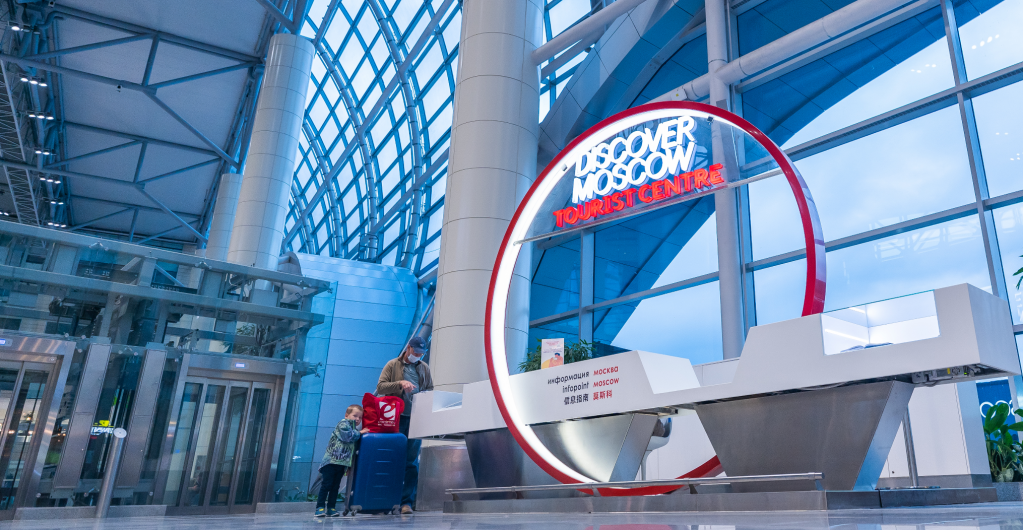
ABOUT US more
Projects more.

Digital travel service RUSSPASS
An innovative travel planning service.
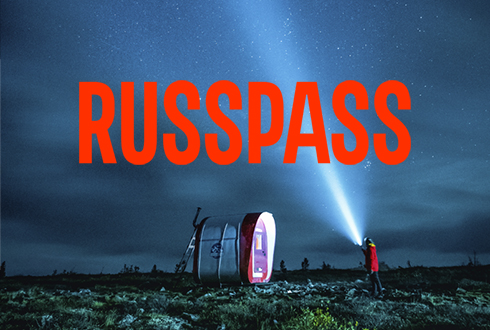
Moscow City Tourism Committee concludes its first-ever digital roadshow in India to a resounding success
The 4-day panned virtual event was specially curated to present the “City of Moscow” as an attractive travel destination to the vibrant Indian outbound travel fraternity spread across 15 major cities PAN India.

Moscow tops the main category at World Travel Awards
Moscow wins in two categories of world travel awards europe, dear moskvichi: 10 stories about moscow told by its citizens.
The main component of each city is its residents. Moscow City Tourism Committee is launching Moskvichi, a special project that aims at showcasing the city through its residents' stories.
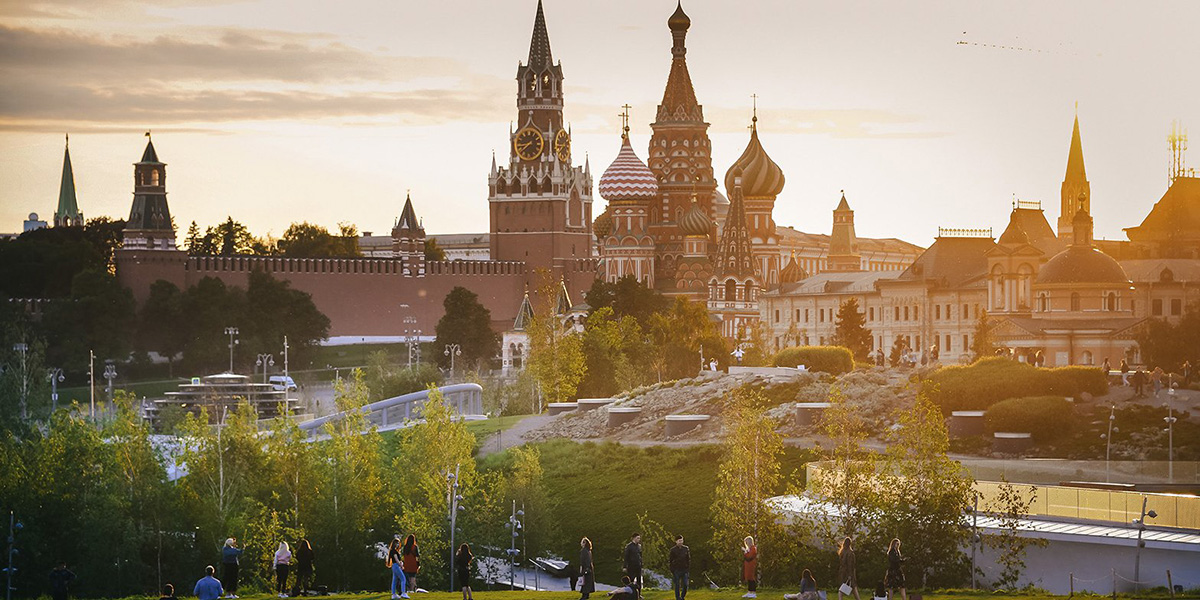
Sergey Sobyanin proposed voting for Moscow at the World Travel Awards
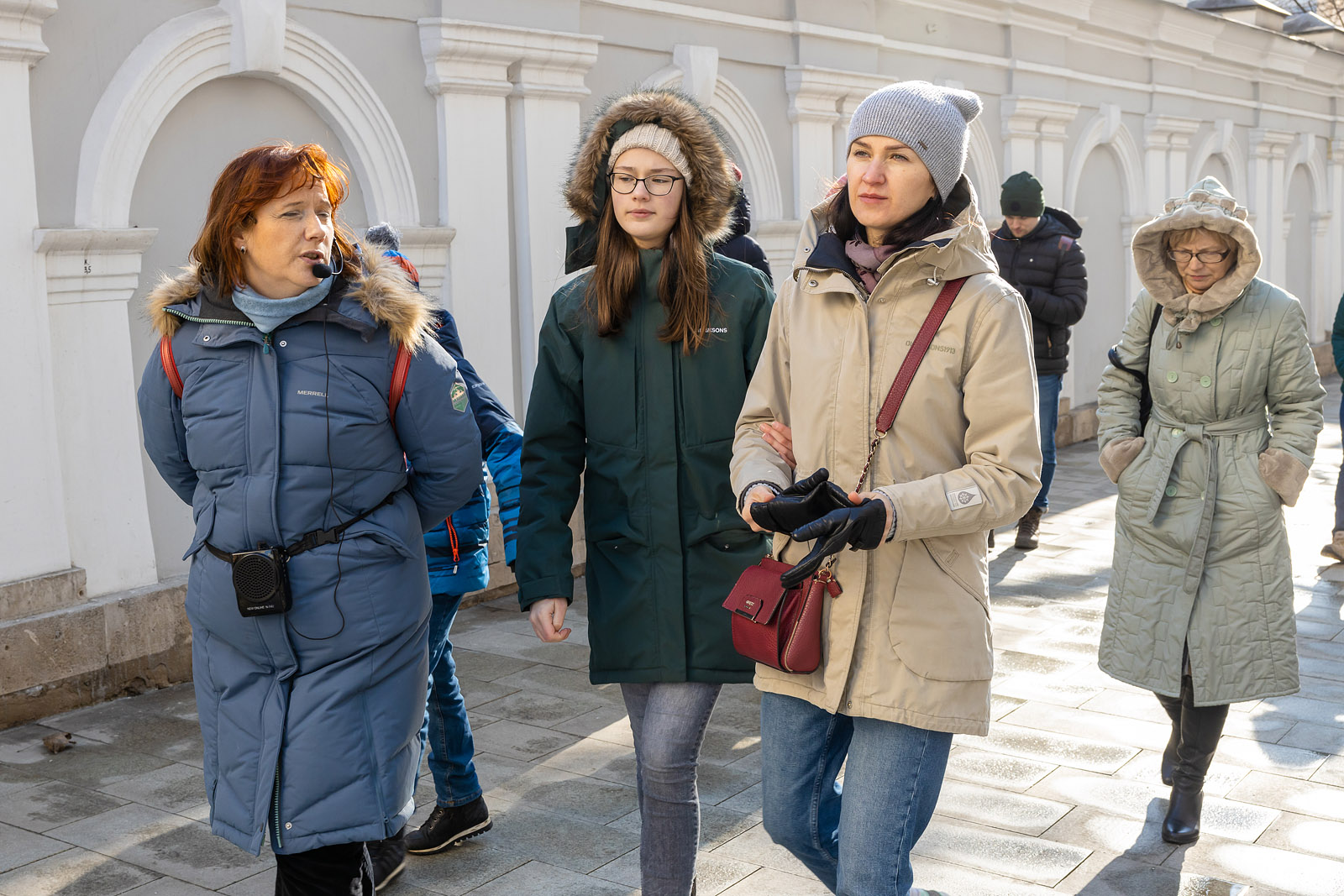
Natalya Sergunina: City tours in honour of International Tourist Guide Day attracted over 3,500 visitors
Natalya sergunina: five moscow hotels were included in the annual forbes travel guide star award ranking.
For the first time, the Four Seasons Hotel Moscow, opened in 2014, was awarded the highest 5-star rating. In addition, the 4-star rating was awarded to Lotte Hotel, The Ritz-Carlton, and Ararat Park Hyatt in Moscow. The “Recommended” rating was awarded to The St. Regis Nikolskaya Hotel in Moscow.

#valentines: romantic photography locations in Moscow
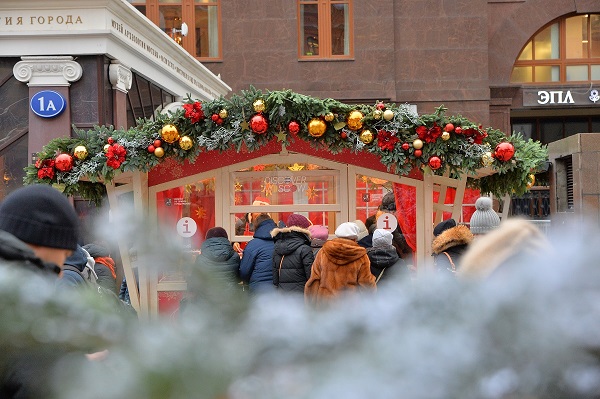
Over 15 Thousand People Visit Tourist Information Centre During Journey to Christmas Festival
Moscow restaurant listed in the russian book of records.
Birds, a restaurant with a panoramic view of Moscow, has set a record and become officially the highest restaurant and club in Europe. This fact has been registered in the Russian Book of Records. The restaurant is located in Moscow-City (MIBC).
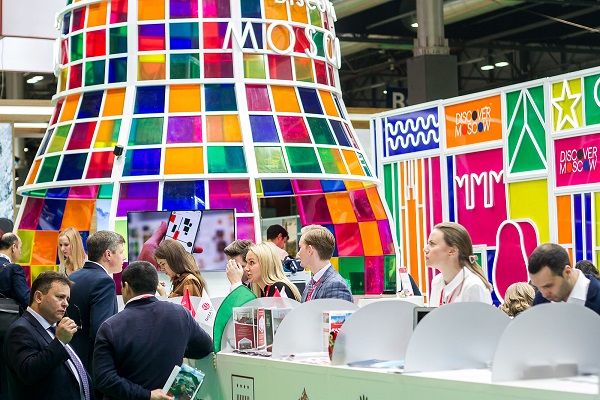
Business meetings, VR travels, and the iconic Moscow ice cream: FITUR tourism trade fair recap
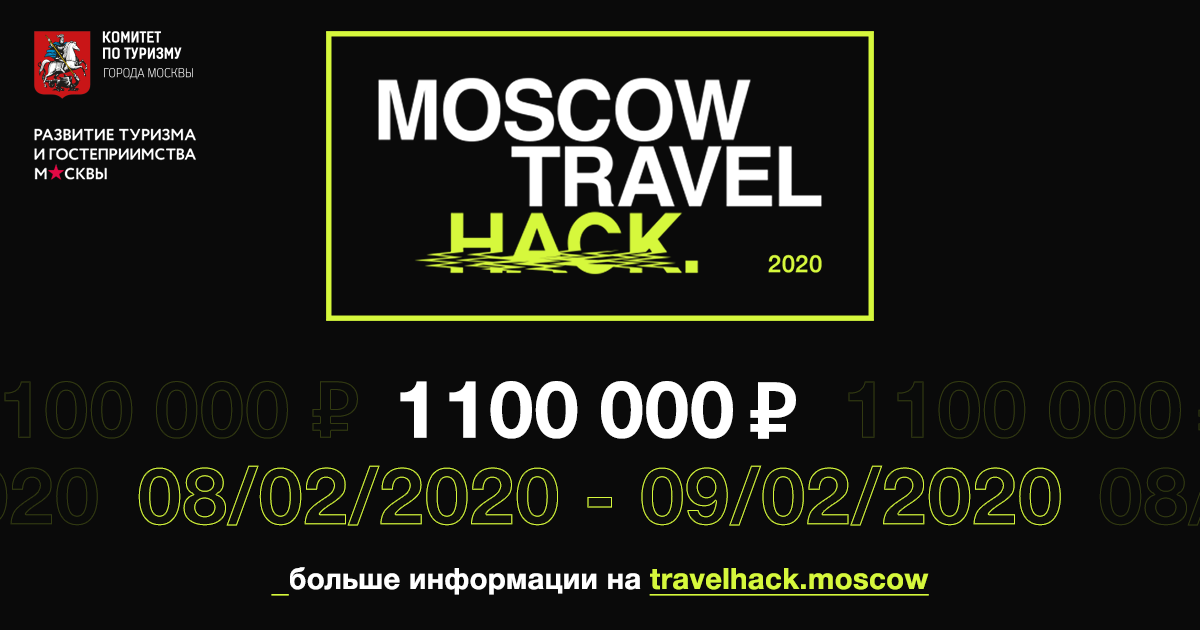
More than 500 people have applied to participate in the Moscow Travel Hack
Moscow to take part in major international tourism trade fair in madrid.
FITUR Madrid 2020 will be the first international event this year where Moscow will present its tourism potential. It will be held from 22 to 26 January.

- China Edition

- China Daily PDF
- China Daily E-paper
Russia increases tourism and cultural cooperation with China
By Pan Yixuan | chinadaily.com.cn | Updated: 2023-09-07 09:09

A meeting themed “Russia-China Cultural and Tourism Cooperation” was held at the Russian House in Beijing on Tuesday.
Representatives from China and Russia discussed tourism and cultural cooperation.
During an interview with Evgeny Kozlov, first deputy head of the Office of the Mayor and Government of Moscow and chairman of the Moscow City Tourism Committee, he highlighted business and film cooperation between the two countries.
Beijing and Moscow have enhanced business and tourism cooperation after the pandemic. Kozlov mentioned a large-scale communication with “15 companies from Moscow met with 150 companies from Beijing” and methods to promote Moscow-Beijing mutual tourist flow including “more than 56 direct flights from Moscow to Beijing”.
According to Kozlov, businessmen and elder people make up most of the Chinese tourists to Russia and social media has been an important channel to promote Russia’s tourism to Chinese people, especially young people.
Kozlov stressed that an optimistic attitude is necessary to develop tourism in the post-pandemic era.
Besides, “film can be a new kind of business communication,” said Kozlov. He mentioned that Moscow has a cinema platform initiative to create platforms for Russian and Chinese film producers. Studios of about 300 hectares are under construction in Moscow for future investment and cooperation in film production.
Kozlov said cooperation to create new fashion connections would be considered when talking about a fashion trend in China that combines traditional Chinese style and characteristics.
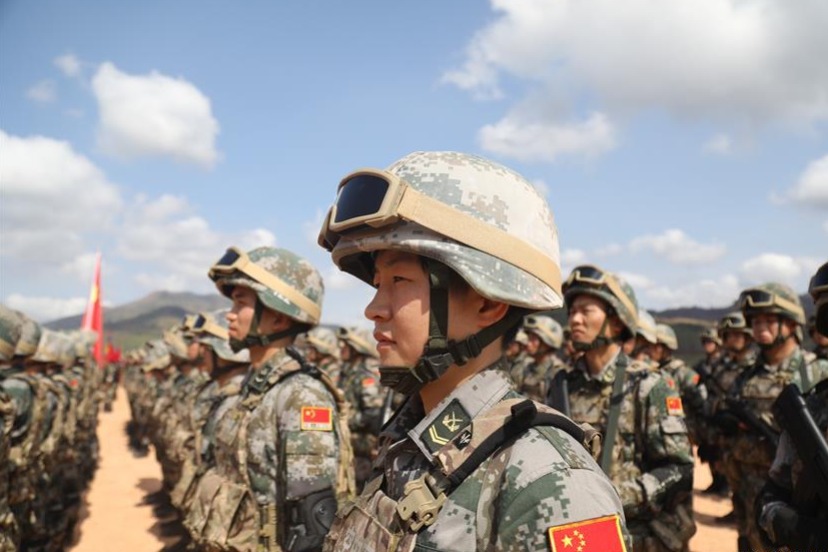

IMAGES
COMMENTS
National: Head Office Agency: Tourism Enterprise Partnership (TEP) Telephone: 011 880 3790 Fax: 011 880 2740 Address: Number 1 Mellis Road, 2nd floor, Romany house ...
The Tourism Enterprise Partnership (TEP) offers hands-on, step-by-step support, guidance and assistance to South Africa's small and medium tourism businesses, facilitating their growth, development and sustainability to become internationally competitive. HISTORY The Tourism Enterprise Programme was initially launched by the Business Trust in ...
The Tourism Enterprise Partnership (TEP), a Non Profit Company, is one of the longest standing and most successful public private partnerships in South Africa. TEP facilitates the growth, development and sustainability of small tourism businesses. This is achieved through a number of products and services that provide hands-on, step-by-step ...
TEP is a Section 21 (non-profit) company that offers hands-on, step-by-step support, guidance and... 2nd Floor, Romany House, 1 Mellis Rd, 2128 Rivonia,...
The Tourism Enterprise Partnership (TEP) briefed the Committee on the support it provided to Small, Micro and Medium Enterprises (SMMEs). The TEP was a non-profit company functioning on public private partnerships. Notable achievements were enterprise and supplier development programmes as well as having a well established practice of cost ...
Fair Trade Tourism (FTT) has recently contracted the Tourism Enterprise Partnership (TEP) to provide business development support services to facilitate certification of South African tourism enterprises. A series of Learning Networks will be conducted throughout the country in early 2015 at which FTT and TEP will jointly present on the benefits and process of certification.
Programme: Tourism Enterprise Partnership Products and Services Organisation: Tourism Enterprise Partnership Type of Support · Business Support · Access to markets · Access to information · Skills development and training · Funding Programme Description There are business development programmes, training courses and mentorship programmes that are available.
TEP Tourism Enterprise Partnership. TEP is the operating entity for strategic partners in tourism. A non-profit company who utilises funding from corporate South African and Government to facilitate growth, development and sustainability of small tourism businesses in South Africa. ...
In terms of SMMEs, the NDT is working in collaboration with the Tourism Enterprise Partnership (TEP) to implement skills development programmes. In 2012, TEP supported 5,003 jobs created by SMMEs, which delivered an increased turnover of R785 million. This raised TEP's overall contribution to job creation over the past ten years to more than ...
The Tourism Enterprise Partnership (TEP) is a Non Profit Company, one of the longest standing and most successful public private partnerships in South Africa. TEP facilitates the growth, development and sustainability of small tourism businesses.
The past two decades have witnessed a growing interest in research on tourism entrepreneurship, recognizing the contribution toward innovation and creating value to a destination (Solvoll et al., 2015).An early focus on tourism entrepreneurship emerged in the late 1970s and early 1980s (see Kibedi, 1979; Simms, 1981).For example, Kibedi (1979) was among the first to reference 'tourism ...
• Flagship public private partnership • One of the longest standing and most successful enterprise development partners for small tourism businesses in South Africa • Facilitating the growth, development and sustainability of small tourism businesses • Offering a number of services that provide hands-on, step-by-step
Of particular note has been the activities of the Tourism Enterprise Partnership (formerly the Tourism Enterprise Programme) which provided SMMEs with skills development, market access and ...
ity of enterprise development, it was decided to institutionalise the programme. On 1 April 2008 TEP became a Section 21 (not for profit) company, renamed the Tourism Enterprise Partnership. Published by the Tourism Enterprise Partnership 53 Central Street, Houghton Johannesburg, South Africa P O Box 1650, Houghton 2041 Tel 011 718 2000 Fax 011 ...
Find out what works well at Tourism Enterprise Partnership from the people who know best. Get the inside scoop on jobs, salaries, top office locations, and CEO insights. Compare pay for popular roles and read about the team's work-life balance. Uncover why Tourism Enterprise Partnership is the best company for you.
South Africa—Tourism Enterprise Programme (TEP) Under apartheid, most South Africans were restricted from traveling freely, owning land, or making investments in areas of their choice. The result: an undeveloped culture of tourism and a lack of appreciation of the economic opportunities presented by tourism.
Research on entrepreneurship in tourism has led to new topics, such as: sustainable, community, institutional, and social entrepreneurship; been the last one the most popular (Daniele & Quezada, 2017; Solvoll et al., 2015; Zebryte & Jorquera, 2017).It is an emerging issue that is conceptualized as innovative actions that achieve both economic benefit and social wealth.
Reviews from Tourism Enterprise Partnership employees about Tourism Enterprise Partnership culture, salaries, benefits, work-life balance, management, job security, and more.
Watch a video of the Kalumburu cultural tourism weaving project facilitated by Master Weaver and remote entrepreneur Margaret Duncan. Margaret has visited Kalumburu three times across 2017, 2018 and 2019 to teach and mentor the women about remote entrepreneurship and how cultural tourism can support both economic and well-being aspirations.
Mr. Evgeny Kozlov, Deputy Head Mayor of Moscow Government and Chairman of the Moscow City Tourism Committee, who has come to the city to attain BLTM, the annual prestigious travel event at the Leela Ambience Convention Centre, Delhi spoke with TW Editor Anirban Dasgupta on his vision and goal with the all-new tourism initiatives in Moscow. The bond between India and Russia has a long history ...
22.12.2020. Moscow City Tourism Committee concludes its first-ever digital roadshow in India to a resounding success. The 4-day panned virtual event was specially curated to present the "City of Moscow" as an attractive travel destination to the vibrant Indian outbound travel fraternity spread across 15 major cities PAN India.
On September 14-15, the Moscow City Tourism Committee presented a new project for educational tourism project named "City of Discoveries" together with its key platforms. More than 40 executives of relevant ministries and agencies from Russian regions. During the 23rd session of the UNWTO General Assembly, at a business session ...
A meeting themed "Russia-China Cultural and Tourism Cooperation" was held at the Russian House in Beijing on Tuesday. Representatives from China and Russia discussed tourism and cultural cooperation. During an interview with Evgeny Kozlov, first deputy head of the Office of the Mayor and Government of Moscow and chairman of the Moscow City ...